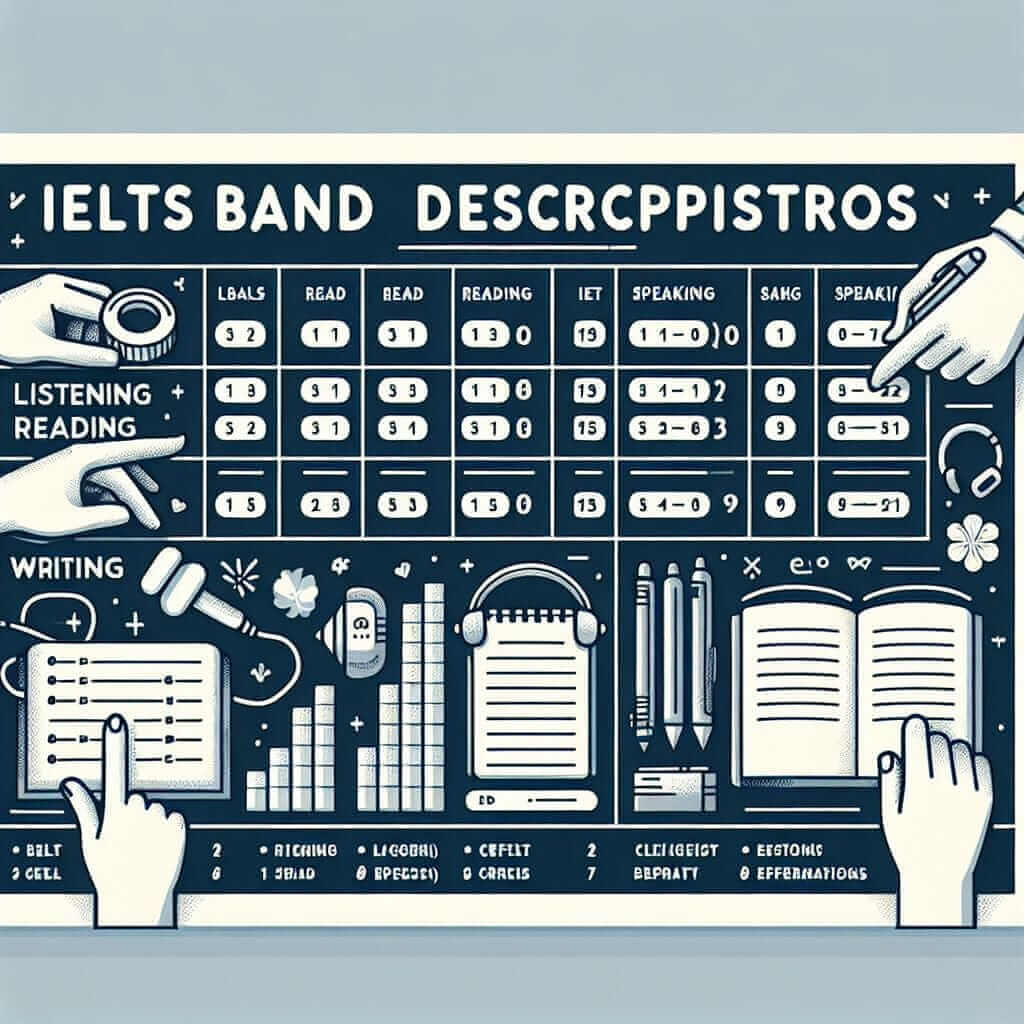Understanding the IELTS Scoring System
The International English Language Testing System (IELTS) is a globally recognized English proficiency test used for study, work, and migration purposes. Achieving a high IELTS band score is often crucial for achieving your academic or professional aspirations. However, many test-takers find the scoring system somewhat mysterious.
This comprehensive guide aims to demystify “how they score in IELTS,” delving into the intricacies of the band descriptors and providing valuable insights to help you maximize your score.
Breaking Down the IELTS Band Descriptors
The IELTS band descriptors are detailed criteria used by examiners to assess your proficiency in four language skills: Listening, Reading, Writing, and Speaking. Each skill is graded on a nine-band scale, with 9 being the highest (expert user) and 1 the lowest (non-user).
What the Band Descriptors Assess
While the specific criteria vary slightly for each skill, the band descriptors generally assess your ability to:
1. Fluency and Coherence: This refers to your ability to speak or write smoothly and logically, connecting your ideas effectively.
2. Lexical Resource: This focuses on the range and accuracy of your vocabulary.
3. Grammatical Range and Accuracy: Examiners assess your ability to use a variety of grammatical structures correctly.
4. Pronunciation (Speaking) or Cohesion and Coherence (Writing): This criterion evaluates your clarity of speech or how well you organize your written responses.

How Examiners Use the Band Descriptors
During the IELTS test, examiners use the band descriptors as a benchmark to evaluate your performance. Your responses are carefully assessed against the specific criteria outlined for each band.
For example, to achieve a Band 7 in IELTS Speaking, you need to demonstrate:
- Fluency and Coherence: Speak at length without noticeable effort or hesitation, and logically sequence your ideas.
- Lexical Resource: Use a sufficient range of vocabulary to convey your meaning precisely, with occasional idiomatic language.
- Grammatical Range and Accuracy: Use a variety of complex structures with a good degree of accuracy.
- Pronunciation: Be easily understood, with intonation and stress that helps convey meaning.
Tips for Maximizing Your Score
1. Familiarize Yourself with the Band Descriptors: Make the band descriptors your study companion. Understand the specific criteria for each skill and each band level.
2. Practice Regularly Using IELTS Materials: Immerse yourself in the language. Practice with official IELTS practice tests and sample answers to get a feel for what is expected.
3. Focus on All Aspects of Language: Don’t neglect any area. Work on improving your fluency, expanding your vocabulary, mastering grammar, and refining your pronunciation.
4. Seek Feedback from Experienced Tutors: Feedback from experienced IELTS instructors can pinpoint your strengths and weaknesses, providing targeted advice to help you improve.
Conclusion
Understanding “how they score in IELTS” is crucial for success. By familiarizing yourself with the band descriptors and focusing on all aspects of language proficiency, you can approach the test with confidence and achieve your desired band score. Remember, consistent effort and targeted practice are key to unlocking your full potential in the IELTS exam.